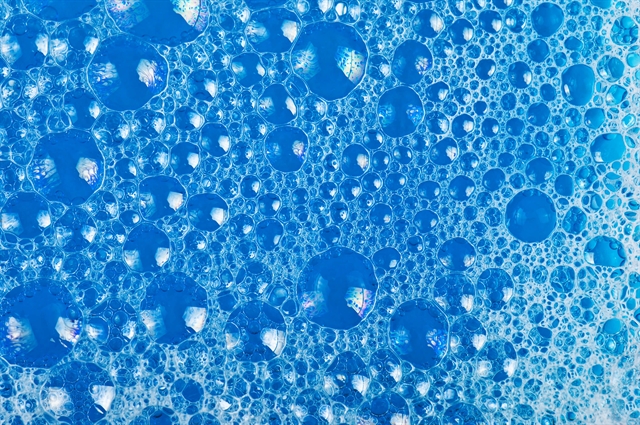The Importance of Defoamers in Industrial Processes and Applications
The Importance of Defoamers in Industrial Processes and Applications
Blog Article
The Role of Defoamers in Enhancing Item High Quality and Efficiency
In numerous producing procedures, the existence of foam can considerably prevent product quality and functional efficiency. Defoamers function as important ingredients that reduce this concern, making sure smoother production operations while enhancing the visual and functional attributes of the final items (defoamers). Their application extends a wide range of sectors, from food and beverage to drugs, where uniformity and dependability are extremely important. The choice of the suitable defoamer can be essential to achieving ideal outcomes, elevating important questions regarding formula compatibility and efficiency metrics that warrant further exploration.
Comprehending Defoamers
Comprehending the function of defoamers is vital for preserving product high quality across various industries. Defoamers are chemical additives designed to reduce and prevent the formation of foam in fluid systems, which can negatively impact processes such as mixing, loading, and surface area stress. Lathering can result in ineffectiveness, product defects, and endangered visual charm, making defoamers an important element in manufacturing procedures.
In commercial applications, defoamers help to improve product consistency and stability. The efficient use of defoamers not just ensures smoother manufacturing processes yet additionally contributes to exceptional item efficiency.
In addition, the option and solution of a defoamer must align with details application requirements, such as compatibility with other components, effectiveness under differing temperature and pH problems, and prospective governing constraints. Inevitably, comprehending defoamers' features and their value in various formulations is critical for optimizing production and guaranteeing the best quality end products.
Types of Defoamers
Defoamers can be classified right into numerous types based on their make-up and mechanism of action. The primary kinds include silicone-based, non-silicone natural, and inorganic defoamers.
Silicone-based defoamers are amongst the most efficient, mainly because of their capability to spread rapidly on the fluid surface area and interrupt foam formation. Their special chemical structure permits premium stability, making them suitable for high-temperature applications and atmospheres with differing pH levels.
Non-silicone natural defoamers, typically made up of all-natural oils or fats, are valued for their biodegradability and lower toxicity. These are usually made use of in food and beverage applications where safety and environmental impact are critical.
Not natural defoamers, which consist of substances like talc or calcium carbonate, act by raising the density of the fluid, thus lowering foam security. They are usually made use of in industrial processes where compatibility with various other materials is not a problem.
Each type of defoamer has unique advantages and constraints, permitting for customized options depending upon the particular lathering issues come across in numerous applications. Comprehending these distinctions is crucial for optimizing efficiency and accomplishing preferred product high quality.
Applications Across Industries
Various markets utilize defoamers to boost item quality and operational effectiveness. In the food and drink market, defoamers are important in processes such as developing and dairy manufacturing to stop foam development, which can result in inadequacies and product variance. By regulating foam, suppliers can guarantee better return and a much more consistent product.
In the pharmaceutical sector, defoamers play a crucial role in the solution of liquid medications, where too much foam can hamper mixing and accurate dosing. Their use assists preserve the stability of the formulations and promotes smoother manufacturing procedures.
The paint and finishes market likewise relies on defoamers to enhance the efficiency of items read this post here during application. By minimizing foam, these ingredients guarantee a smoother coating and enhance the visual high qualities of the end product.
Advantages of Making Use Of Defoamers
While the application of defoamers differs across industries, their advantages consistently boost product high quality and process efficiency. One substantial benefit is the reduction of foam formation throughout producing processes, which can otherwise result in production delays and variances in product quality. By decreasing foam, defoamers enable a smoother circulation of products, helping with more reliable procedures and lowering the chance of tools breakdowns.
In addition, the usage of defoamers can boost the appearance and texture of end products. In industries such as coatings, paints, and food processing, extreme foam can compromise the visual appearances and general top quality, while the suitable defoamer application guarantees a consistent coating and preferable qualities. Defoamers can add to cost financial savings by reducing waste throughout manufacturing and optimizing the usage of raw products.

Selecting the Right Defoamer
Selecting the right defoamer is vital for maximizing production processes and guaranteeing item quality. The choice of defoamer affects not only the performance of foam control however also the overall performance characteristics of the last product. Factors to take into consideration consist of the sort of application, the chemistry of the formulation, and the environmental conditions under which the item will certainly be made use of.
Different sectors might require certain defoamer kinds, such as silicone-based, organic, or polymeric defoamers. Comprehending the compatibility of the defoamer with the web link primary ingredients is necessary to avoid damaging responses that might compromise item honesty. In addition, the defoamer's effectiveness in different temperature levels and pH levels need to be reviewed to guarantee consistent efficiency.
Checking the defoamer in small applications can supply valuable understandings right into its efficiency and viability. Consideration of regulatory compliance, particularly in food, pharmaceuticals, and cosmetics, is paramount in picking a defoamer. Eventually, an extensive assessment of these elements will certainly cause the choice of a defoamer that not only regulates foam properly however likewise improves the top quality and efficiency of the final product.
Final Thought

In verdict, defoamers are important ingredients that dramatically improve item high quality and performance across numerous markets. The tactical selection and application of defoamers lead to cost savings, enhanced resource usage, and increased consumer contentment.
Lathering can lead to inadequacies, product defects, and endangered aesthetic charm, making defoamers a critical element in manufacturing operations.

Report this page